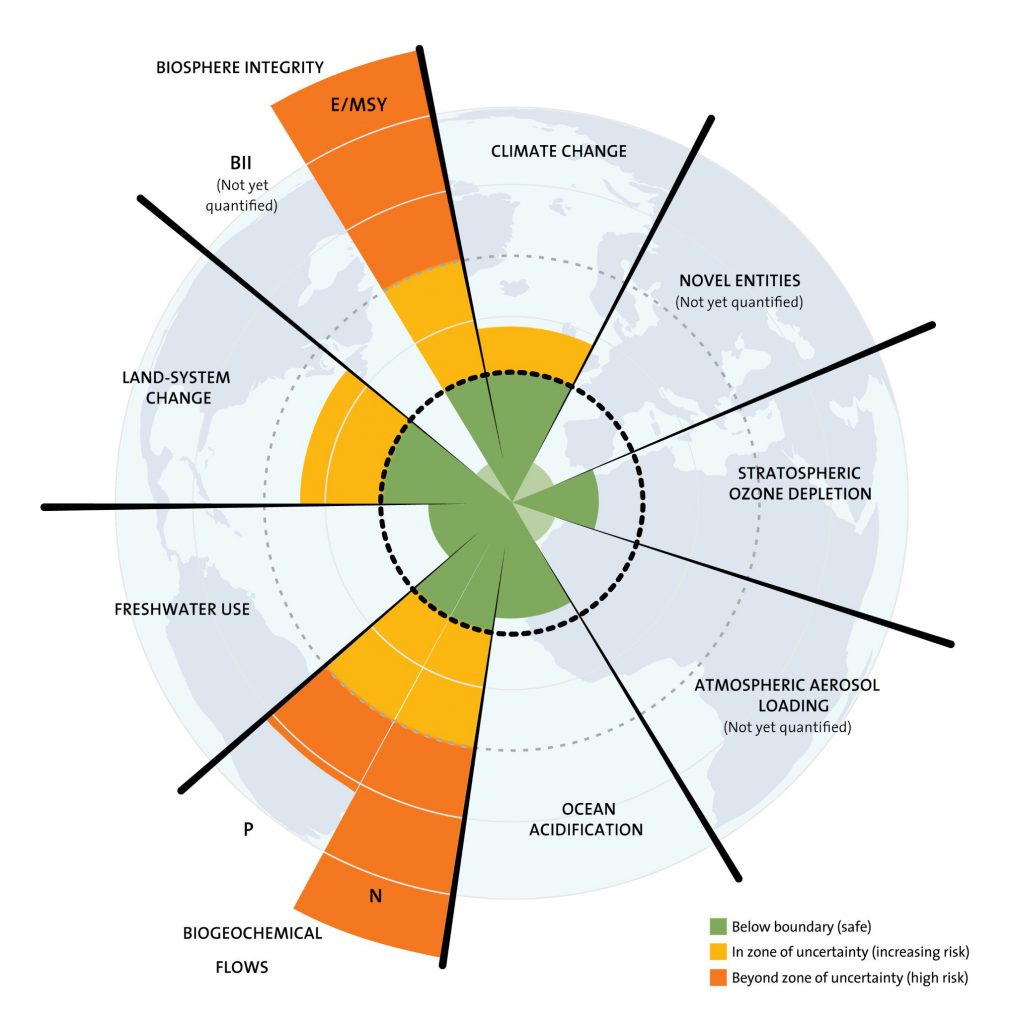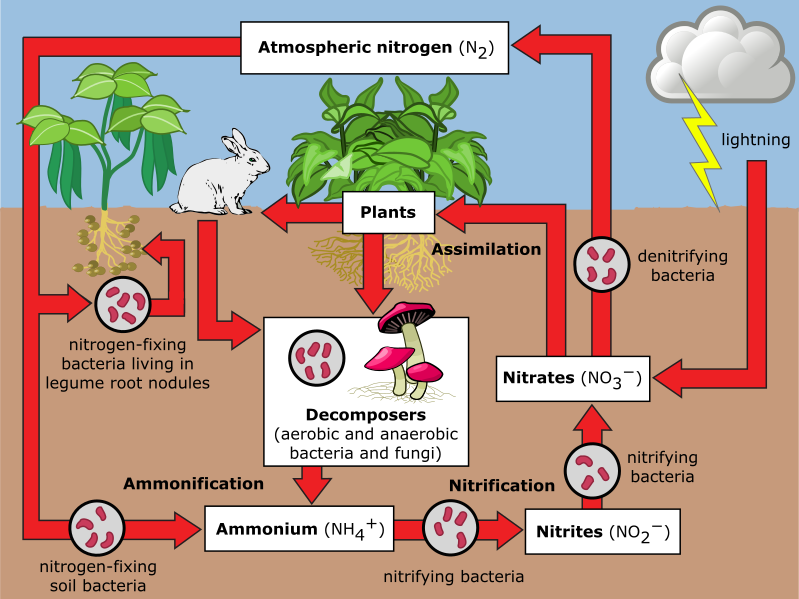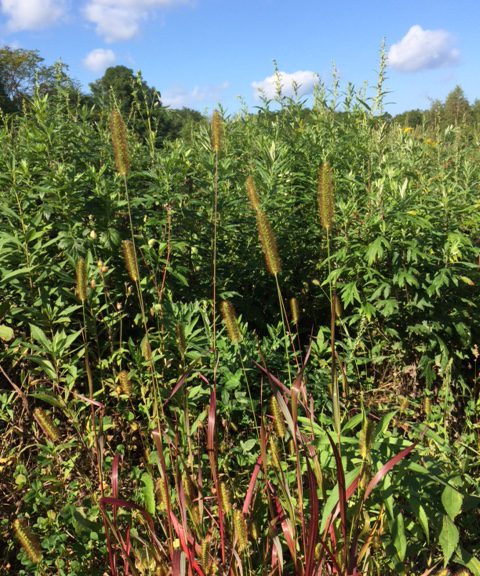Since the 1970s scientists have warned that our human activities are degrading our environment and would reach the earth’s limits.

Furthermore, we have already exceeded some limits. In other words, we are overshooting. If we can not take effective and prompt countermeasures, we will collapse.
Let’s see the boundaries which have already exceeded the safety level. According to Stockholm Resilience Centre, the situations are as follows;
- Loss of biosphere integrity (biodiversity loss and extinctions)
The Millennium Ecosystem Assessment of 2005 concluded that changes to ecosystems due to human activities were more rapid in the past 50 years than at any time in human history, increasing the risks of abrupt and irreversible changes.
The main drivers of change are the demand for food, water, and natural resources.
- Nitrogen and phosphorus flows to the biosphere and oceans
The biogeochemical cycles of nitrogen and phosphorus have been radically changed by humans as a result of many industrial and agricultural processes. Nitrogen and phosphorus are both essential elements for plant growth, so fertilizer production and application is the main concern.

- Land system change
Land is converted to human use all over the planet. Forests, grasslands, wetlands and other vegetation types have primarily been converted to agricultural land. This land-use change is one driving force behind the serious reductions in biodiversity, and it has impacts on water flows and on the biogeochemical cycling of carbon, nitrogen and phosphorus and other important elements.
- Climate Change
Recent evidence suggests that the Earth, now passing 390 ppmv CO2 in the atmosphere, has already transgressed the planetary boundary and is approaching several Earth system thresholds.
Now we are facing the one of situations of overshooting and collapse with COVID19. We experience what is overshooting and collapse. We are realizing that our current practices and systems are not effective.
The times and size of disasters are increasing such as floods, wildfires, and drought. Those are apparent signs that we are exceeding the limits. We need something different, more drastic system changes.
During human history, we have experienced various significant social changes. We shifted hunter-gather culture to agriculture. Then we moved agriculture to industry. We have experienced drastic changes. Through these changes, we received some wealth but generated problems and degrade mother earth. Now we need another transformation. Let’s say “sustainability revolution”.
We have full of problems but at the same time, we have great opportunities to join the sustainability revolution. Everyone has a right to participate.
I don’t know how to achieve the revolution and what are exact solutions for it. However, I feel that solutions are around us but they are hidden from our sight.
When you carefully observe plants on the wasted land of the picture above. you will understand there are meanings why they grow in a particular location.
We have a chance to fully utilize our imagination and creativity to find and practice them.
Let’s join this sustainability revolution and enjoy this opportunity.


Hello, Mr Tsuboi!
Hope you are fine!
In the matter of sustainbility revolution, I think we have , first, to change our behaviour in the treating of agricultural wastes.
Nesrine charef.
Algeria.
Hi Nesrine-san,
Thank you for your comment.
We are fine. Thank you for asking.
Yes. As you mentioned, reducing wastes is much more effective and easier to start than creating something new. I will do that more. 🙂
Hi Mr Tsuboi! how are you?
Hope you are fine!
In Algeria, sustainble development is one of the important objectives of our national strategy.
We hope that we could realise this objective successfully.
Yours!
Charef Nesrine San from Algeria.
Hi, Nesrine-san,
Thank you for your comment.
I’m glad to hear that Sustainable development is your country’s strategy.
Let’s make a better world. 🙂